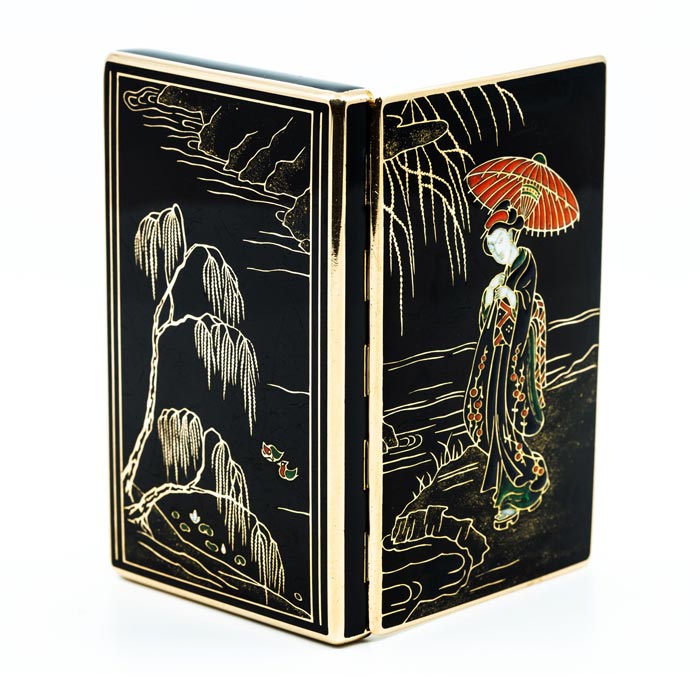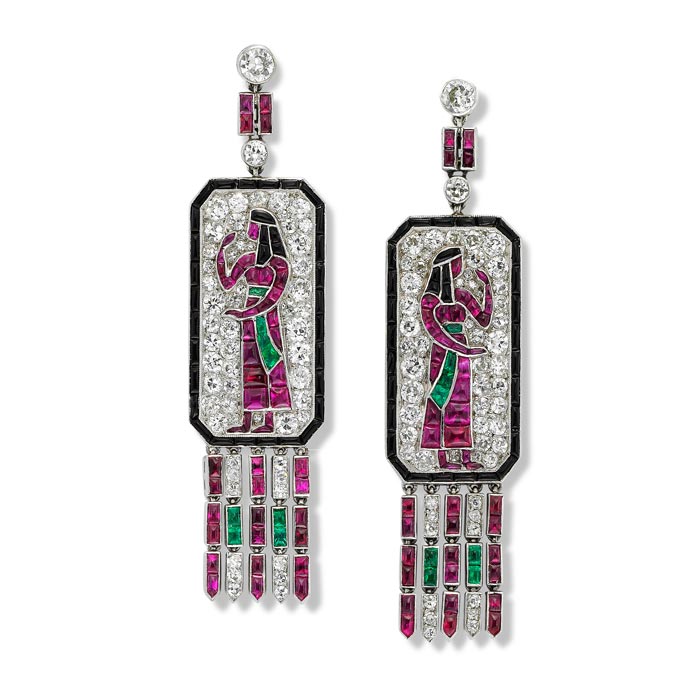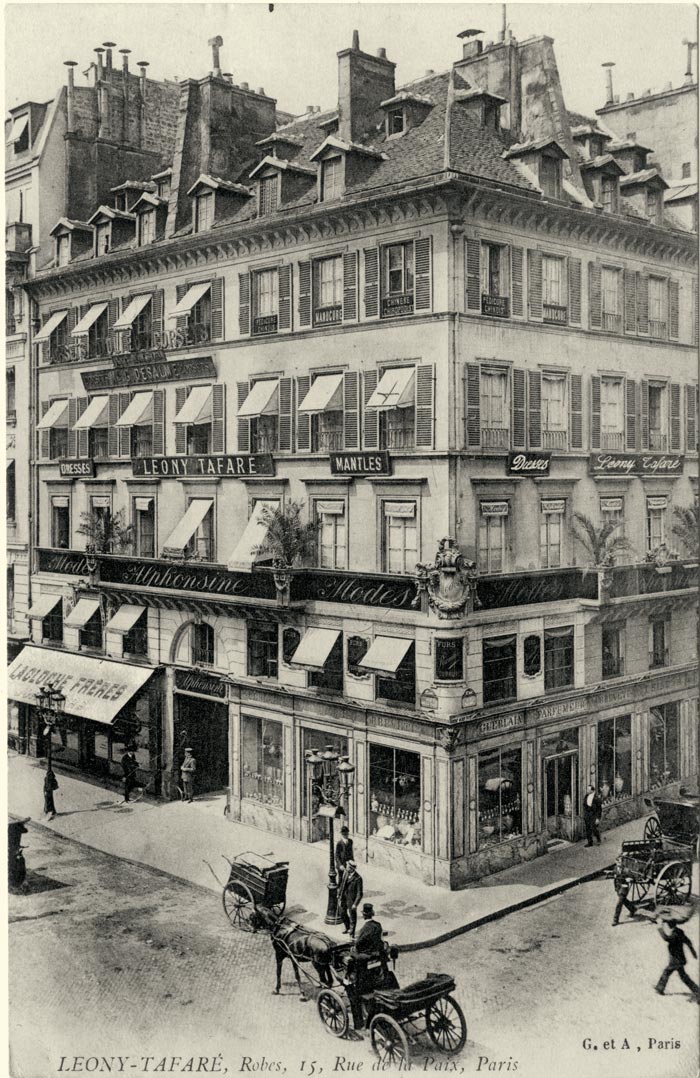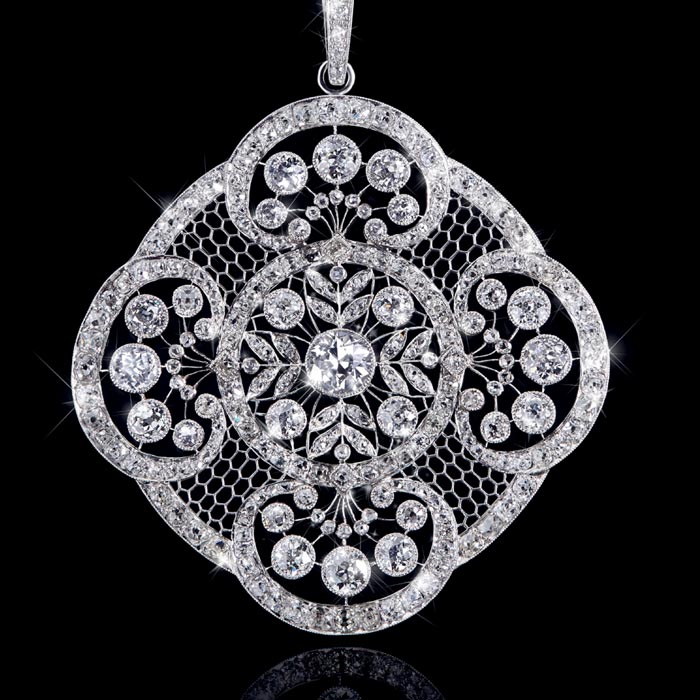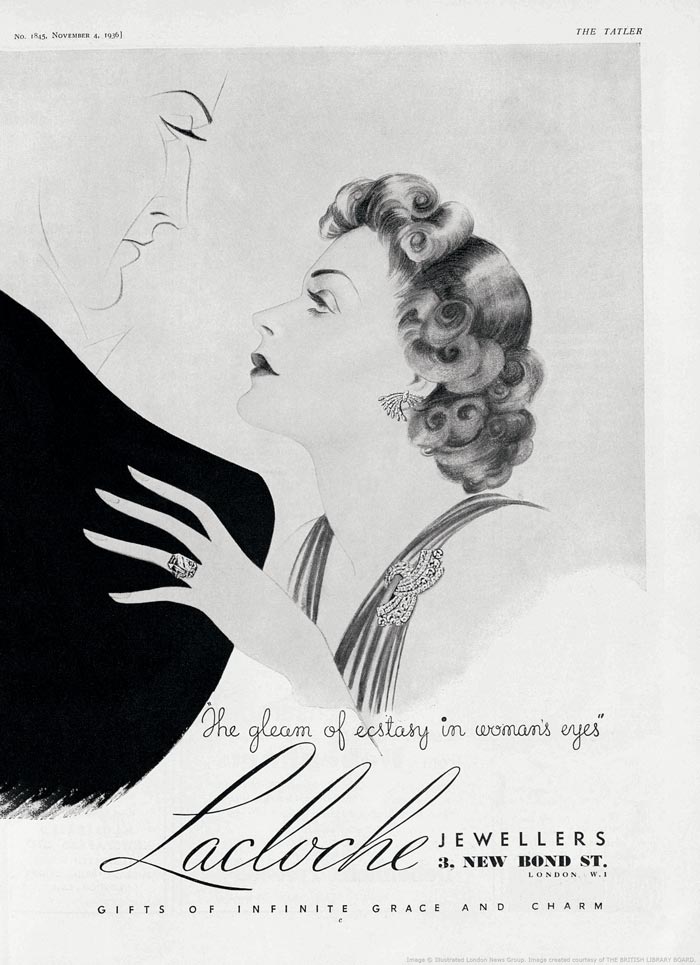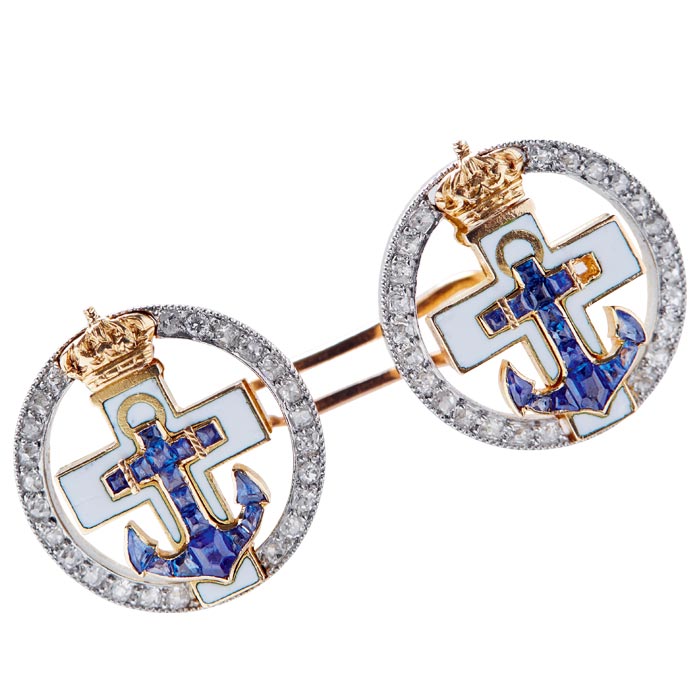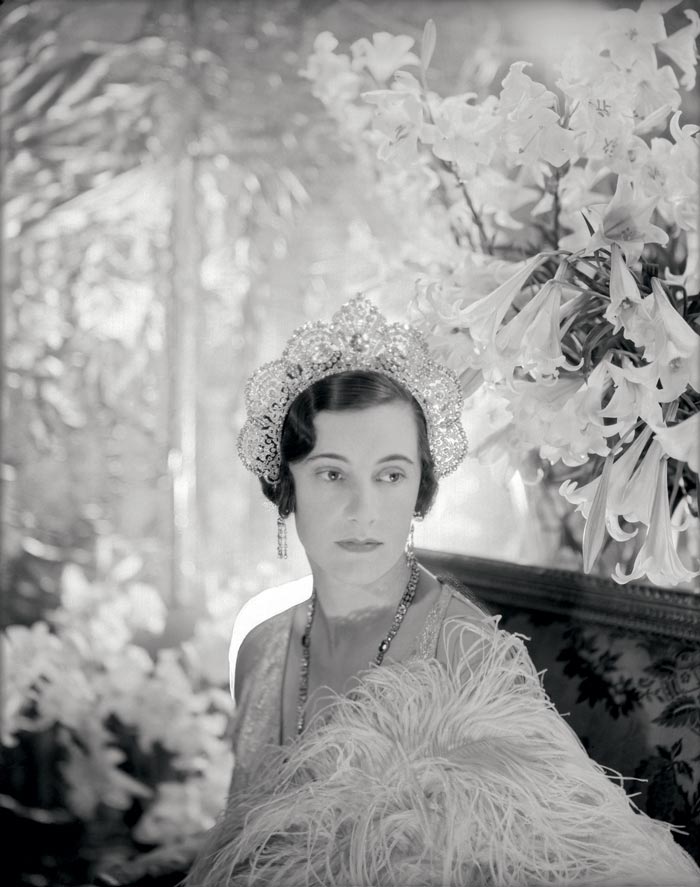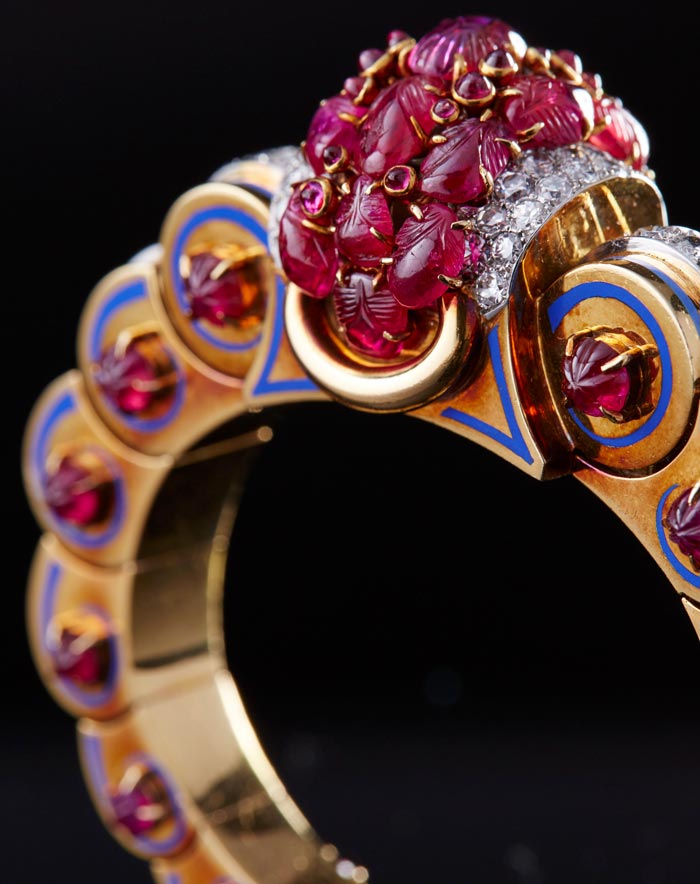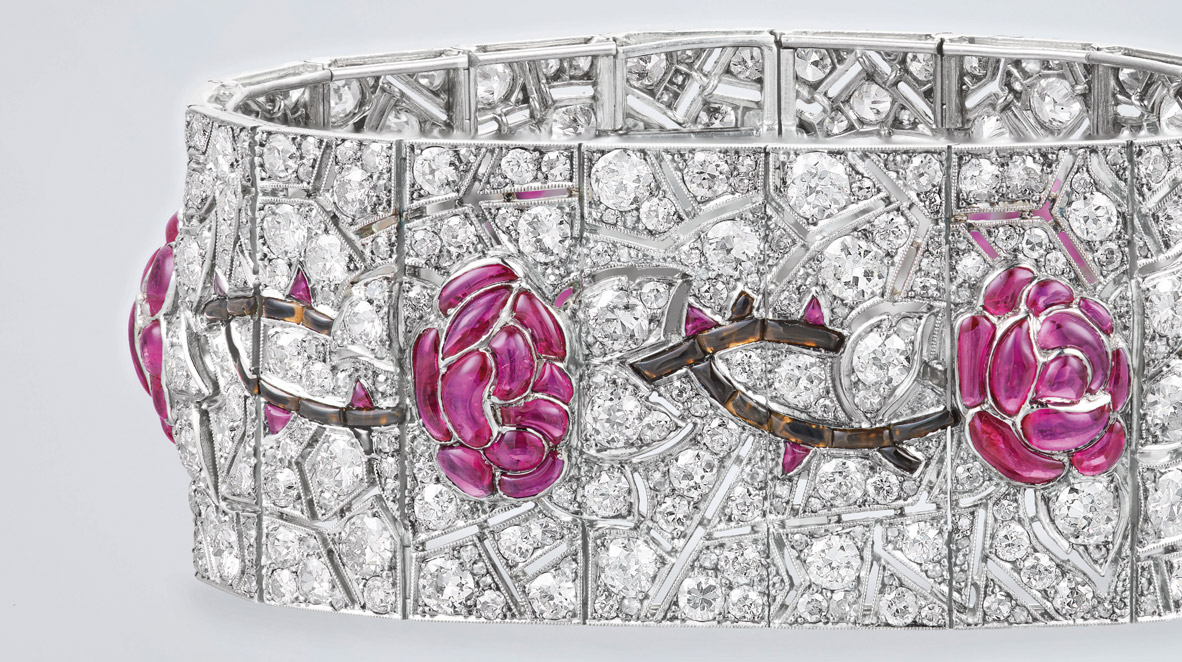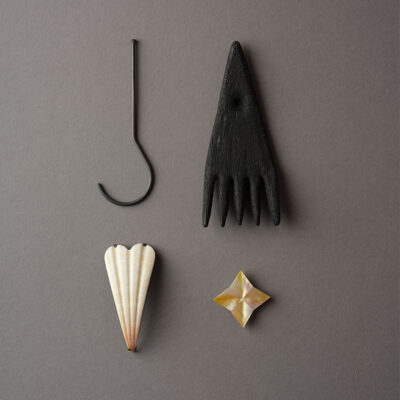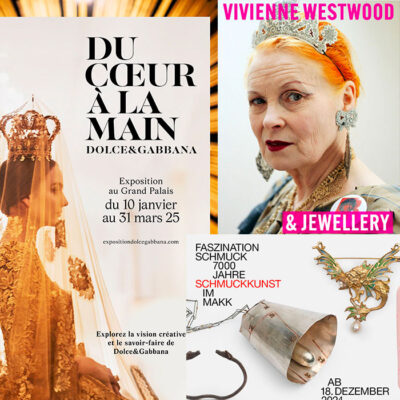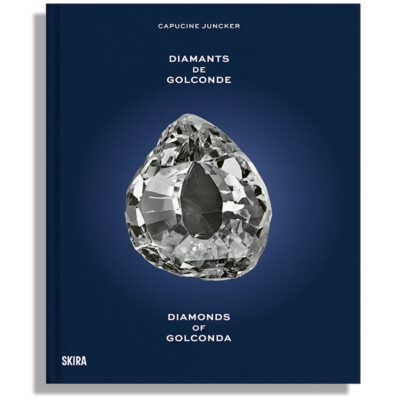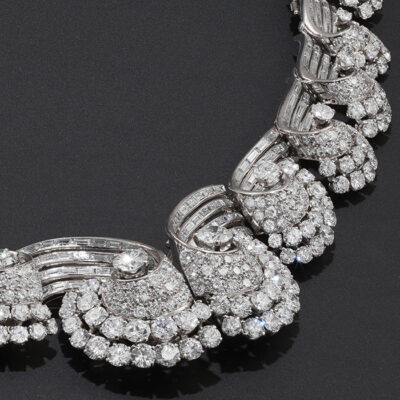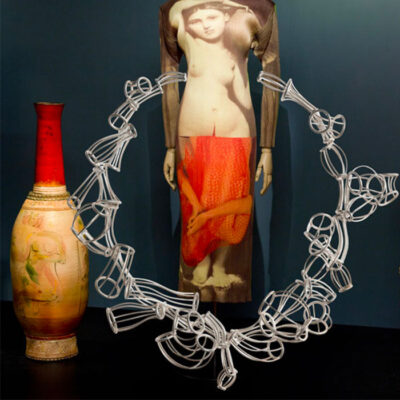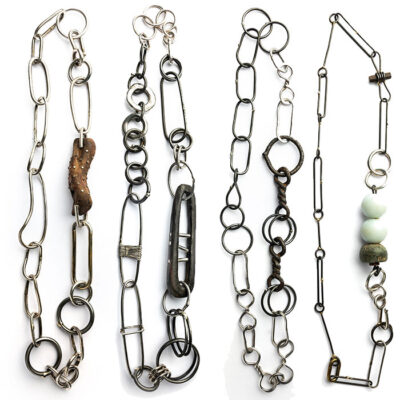My agenda
07 September 2019
Share
Lacloche, a book and an exhibition
For the first time, Lacloche, a French jeweler that has quite vanished from the collective memory, is the focus of an exhibition and a book, both the work of Laurence Mouillefarine.
Sandrine Merle. Why did this jeweler, founded in the 19th century and well-known in the profession, disappear from the collective memory?
Laurence Mouillefarine. Lacloche, created by four brothers, was as big as Cartier but only lasted for seventy years. First, the company went bankrupt in 1931, because the son of one brother lost everything gambling. In 1935, a nephew, Jacques, successfully revived the business, before closing it down for good in 1967 to focus on contemporary art. His son, Francis, then had the idea of a book (edited by Norma), which in turn spawned an exhibition. The whole venture has been funded by L’École des Arts Joailliers.
S.M. You compare Lacloche with Cartier?
L.M. Like Cartier, Lacloche took part in the famous exhibition of 1925. Its main store was at 15 Rue de la Paix (just beside Cartier, at no. 13) and it also had branches in London and NYC. It used the same production workshops, and had customers who were just as prestigious, including the Duchess of Westminster, Edward VII, the Rothschilds, Elsa Schiaparelli and Florence Gould, not to mention the King of Siam and the Maharajahs of Jaipur and Kapurthala.
S.M. At one point, you despaired of finding its archives…
L.M. Lacloche was everywhere, but I couldn’t lay my hands on anything, despite endless searching, as most documents had been thrown out or sold at auction. Then finally, on a visit to the Musée des Arts Décoratifs, we discovered (with co-author Véronique Ristelhueber) a catalogue commemorating the 50th anniversary of the 1925 exhibition. It contained two albums of hand-painted gouache drawings, one with 63 jewelry items and boxes, the other with 21 small clocks (made by Verger). After a real treasure hunt, I finally ran them to earth with a New York collector… A miracle. I could at last start writing this book! I literally wept for joy.
S.M. Was Lacloche a trailblazer?
L.M. Jewelry that is always ahead of its time is impossible to date accurately without the archives. Not only that, but Lacloche also used designs by the same craftsmen as other jewelers of that period (Verger, Pery, Langlois and Allard & Meyer), who sometimes sold the same ones to several jewelers! So I can’t establish with certainty whether it was a trailblazer. That said, its poetic, extremely delicate work is inimitable.
S.M. Lacloche had various magnificent specialties.
L.M. Yes, like the so-called “petit point” technique: a kind of platinum lace embroidered with roses in precious stones, reminiscent of a tapestry. It also excelled in boxes (clutch bags, vanity cases andcigarette cases). They were infinitely exquisite and unbelievably varied – oblong, octagonal, carved in rock crystal, ornamented with chrysanthemums in relief, covered in Tonkinese lacquer, or with silver linings studded with enamel motifs. Some unfolded in three sections; others were in envelope form. In 1924, a scene in a play spoke volumes about their quality. The heroine drew out a cigarette case; her stage companion asked if it was a Cartier, and she replied “No, Lacloche, and I’ve had it for many years.”
S.M. What are we going to see in this first show?
L.M. In chronological order, seventy objects illustrating the naturalism of 1900, platinum jewelry, the Twenties, and so on. In the center, fifteen pieces appear in a staging that echoes the 1925 exhibition.
S.M. Are there further archives on Lacloche waiting to be discovered?
L.M. When the book comes out, more will be revealed, as was the case with Raymond Templier. So watch this space!
Exhibition from 23 October to 20 December 2019 at L’École des Arts joailliers
Buy the “Lacloche Joailliers” monograph at Les Éditions Norma
Banner photo: bracelet in platinum, diamonds, cabochon of rubies from the exhibition of 1925 © Christies


